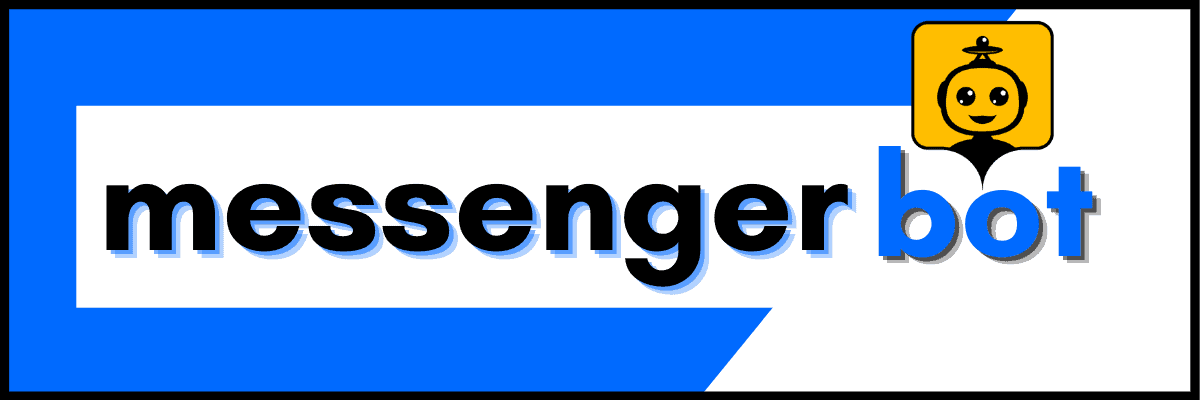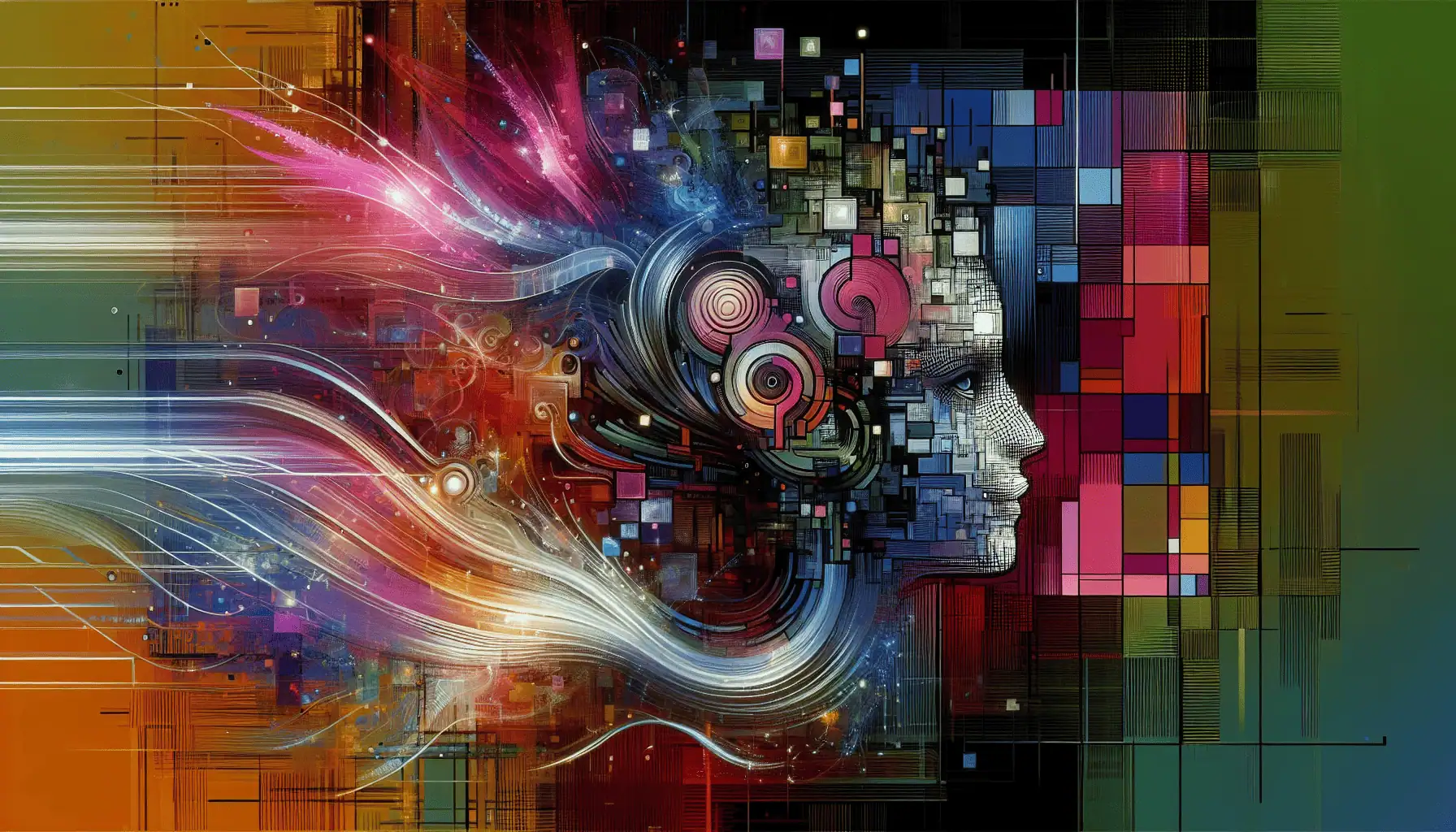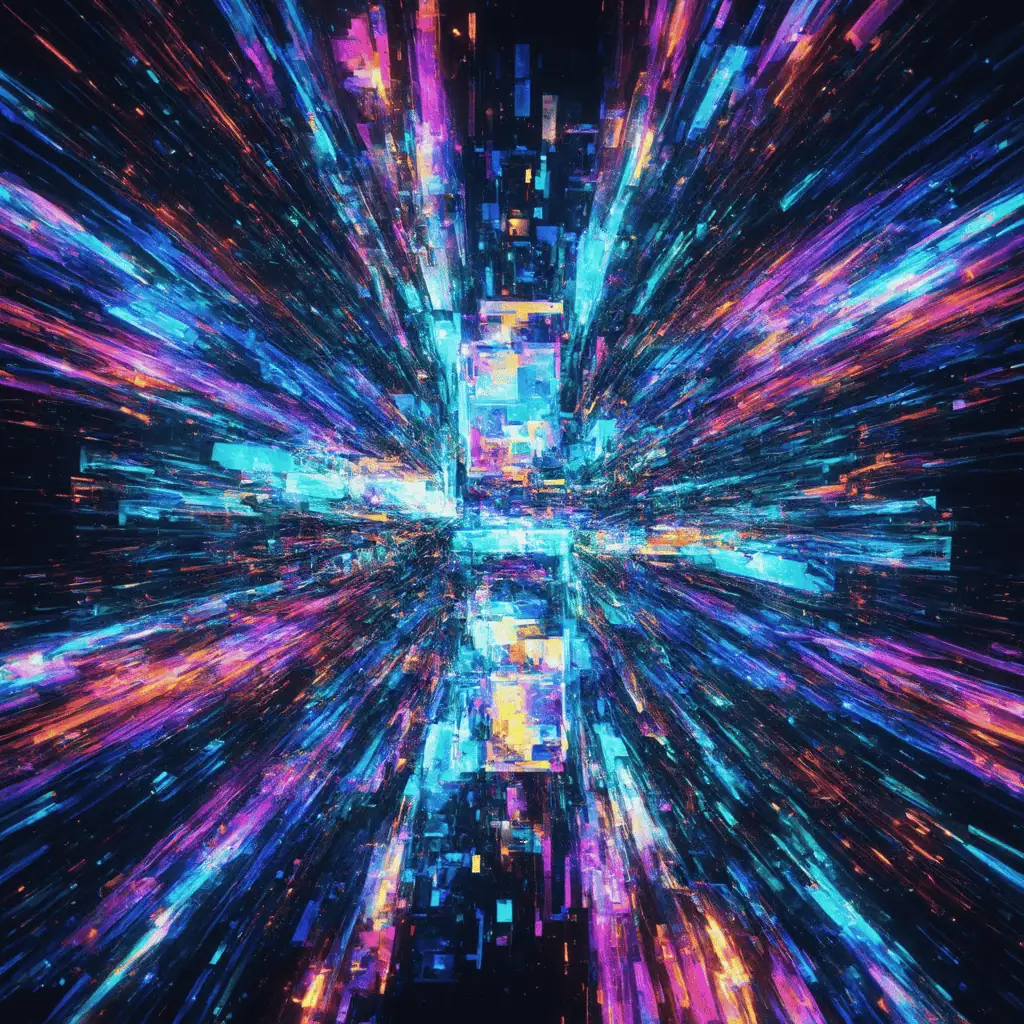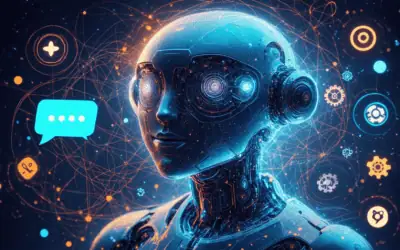Key Takeaways
- Effective UI for Chatbots: A well-designed chatbot user interface enhances user engagement, satisfaction, and retention.
- Importance of Clarity: Clear language and visual appeal in chatbot UI design are essential for an intuitive user experience.
- Utilizing Templates: Chatbot UI design templates streamline the development process, ensuring consistency and improving time efficiency.
- Best Practices: Prioritize simplicity, responsive design, and personalization to create a chatbot interface that resonates with users.
- Leveraging GitHub Resources: Explore GitHub for open-source chatbot UI projects to enhance functionality and design.
- Web Tools Advantages: Use web-based tools for efficient design, integration, and user testing of chatbot interfaces.
In the rapidly evolving world of digital communication, the UI for chatbot plays a pivotal role in shaping user interactions and experiences. An effective chatbot user interface not only enhances engagement but also streamlines communication, making it essential for businesses looking to leverage AI technology. This article delves into the intricacies of chatbot interface design, exploring key elements that contribute to a successful chatbot UI. We will discuss the benefits of utilizing chatbot UI design templates and highlight best practices to avoid common pitfalls. Additionally, we will guide you through valuable resources, including GitHub repositories and top chatbot UI libraries, to empower developers in creating intuitive and engaging interfaces. Join us as we uncover strategies for designing AI chatbot UI that captivates users and drives meaningful interactions.
What is effective UI for chatbot?
Effective UI for chatbots is crucial in ensuring that users have a seamless and engaging interaction with the chatbot. A well-designed chatbot user interface (UI) not only enhances user experience but also drives engagement and satisfaction. By focusing on the chatbot interface design, businesses can create a more intuitive and user-friendly environment that encourages users to interact more frequently and effectively.
Understanding the Importance of UI in Chatbots
The user interface of a chatbot serves as the primary point of interaction between the user and the AI chatbot. A clear and engaging chatbot UI can significantly impact user retention and satisfaction. Here are some key reasons why UI is essential in chatbots:
- First Impressions Matter: The initial interaction sets the tone for the entire user experience. A visually appealing and functional chatbot interface can create a positive first impression.
- Enhanced Usability: A well-structured UI allows users to navigate the chatbot easily, making it simpler for them to find the information or assistance they need.
- Increased Engagement: An effective UI encourages users to engage more with the chatbot, leading to higher interaction rates and improved customer satisfaction.
Key Elements of Chatbot User Interface Design
To create an effective AI chatbot UI, several key elements should be considered:
- Clarity: The language used in the chatbot should be clear and concise, ensuring that users understand the responses without confusion.
- Visual Appeal: A visually attractive design, including colors, fonts, and icons, can enhance the overall user experience and make interactions more enjoyable.
- Responsiveness: The chatbot should be responsive across various devices and platforms, ensuring a consistent experience whether on mobile or desktop.
- Personalization: Incorporating personalized elements, such as user names or tailored responses, can make interactions feel more engaging and relevant.
By focusing on these elements, businesses can develop a chatbot UI design that not only meets user expectations but also enhances the overall effectiveness of their chatbot solutions. For more insights on chatbot functionalities, explore our chatbot features.
How can chatbot UI design templates enhance user experience?
Chatbot UI design templates play a crucial role in enhancing user experience by providing a structured and visually appealing interface. These templates are designed to streamline interactions, making it easier for users to navigate and engage with chatbots. By utilizing effective UI for chatbot, businesses can significantly improve user satisfaction and engagement rates.
Benefits of Using Chatbot UI Design Templates
- Consistency: Chatbot UI design templates ensure a consistent look and feel across various platforms, which helps in building brand recognition and trust.
- Time Efficiency: Using pre-designed templates allows developers to save time on design and focus on functionality, enabling quicker deployment of chatbots.
- User-Centric Design: Many templates are created based on user research, ensuring that they meet the needs and preferences of the target audience, which enhances overall user experience.
- Customization: While templates provide a solid foundation, they can also be customized to align with specific brand guidelines, allowing for a unique chatbot user interface that stands out.
Popular Chatbot UI Design Templates Available
There are several popular chatbot UI design templates available that cater to different business needs. Some noteworthy options include:
- BotUI: A lightweight JavaScript framework that offers a simple and customizable UI for chatbots, making it easy to integrate into existing websites.
- Chatbot UI Kit: A comprehensive kit that provides various components and layouts for building engaging chatbots, suitable for both web and mobile applications.
- React Chatbot Kit: Designed specifically for React applications, this template allows developers to create interactive and dynamic chatbots with ease.
- Material-UI Chatbot: Leveraging Google’s Material Design principles, this template offers a modern and visually appealing interface that enhances user interaction.
By leveraging these templates, businesses can create effective chatbot interface designs that not only engage users but also drive conversions. For more insights on chatbot functionalities, explore our key features of chatbots.
What are the best practices for chatbot interface design?
Designing an effective UI for chatbot requires a strategic approach that prioritizes user experience. By adhering to essential best practices, you can create a chatbot user interface that not only meets user expectations but also enhances engagement and satisfaction.
Essential Best Practices for AI Chatbot UI
- Simplicity is Key: A clean and straightforward chatbot interface minimizes user confusion. Avoid clutter and focus on essential features that facilitate user interactions.
- Consistent Design Elements: Use consistent colors, fonts, and button styles throughout the chatbot UI. This consistency helps users navigate the interface more intuitively.
- Responsive Design: Ensure that your AI chatbot UI is responsive across various devices. A seamless experience on mobile and desktop is crucial for user retention.
- Personalization: Incorporate elements that allow the chatbot interface to adapt to user preferences. Personalized greetings and responses can significantly enhance user engagement.
- Feedback Mechanisms: Implement feedback options within the chatbot UI design. This allows users to report issues or provide suggestions, fostering a sense of community and improvement.
Common Mistakes to Avoid in Chatbot Interface Design
- Overcomplicating Interactions: Avoid making the chatbot interface too complex. Users should be able to navigate and interact with the chatbot effortlessly.
- Ignoring User Feedback: Failing to incorporate user feedback can lead to a stagnant chatbot UI. Regularly update the interface based on user suggestions and behavior analytics.
- Neglecting Accessibility: Ensure that your AI chatbot interface is accessible to all users, including those with disabilities. This includes using appropriate color contrasts and providing text alternatives for visual elements.
- Inconsistent Messaging: Maintain a consistent tone and style in the chatbot’s responses. Inconsistencies can confuse users and diminish trust in the chatbot UI.
- Failing to Test: Regularly test the chatbot interface design to identify and resolve issues before they affect users. A/B testing can be particularly useful in optimizing user interactions.
How to utilize UI for chatbot GitHub resources?
Utilizing GitHub resources for UI for chatbot development can significantly enhance the design and functionality of your chatbot interface. GitHub is a treasure trove of open-source projects, templates, and community contributions that can streamline your chatbot UI design process. By exploring these repositories, you can find innovative solutions and best practices that align with your specific needs.
Exploring GitHub Repositories for Chatbot UI
When searching for chatbots UI resources on GitHub, focus on repositories that offer comprehensive documentation and active community support. Here are some key aspects to consider:
- Search for Popular Repositories: Look for repositories with high stars and forks, indicating community approval and usage. Projects like Microsoft Bot Framework Web Chat provide robust UI components for integrating chatbots into web applications.
- Review Documentation: Quality documentation is essential for understanding how to implement and customize the UI components. Many repositories include examples and tutorials that can guide you through the setup process.
- Community Contributions: Engage with the community by checking issues and discussions. This can provide insights into common challenges and innovative solutions that other developers have implemented.
How to Implement GitHub Chatbot UI Projects
Implementing a chatbot UI design from GitHub involves several steps to ensure a smooth integration:
- Clone the Repository: Start by cloning the desired repository to your local machine. This allows you to modify and test the UI components as needed.
- Customize the UI: Tailor the chatbot user interface to fit your brand’s aesthetic and functional requirements. This may include adjusting colors, fonts, and layout to create a cohesive experience.
- Integrate with Your Chatbot: Connect the UI components with your backend chatbot logic. Ensure that the AI chatbot UI interacts seamlessly with your messaging platform, whether it’s Facebook Messenger or a custom web application.
- Test and Iterate: Conduct thorough testing to identify any usability issues. Gather feedback from users to refine the interface and enhance the overall experience.
By leveraging GitHub resources, you can create a sophisticated chatbot interface that not only meets user expectations but also stands out in a competitive landscape. For more insights on chatbot functionalities, check out our key features of chatbots.
Where can I find chatbot UI library resources?
Finding the right UI for chatbot development is crucial for creating effective and engaging chatbots. A variety of chatbot UI libraries are available, each offering unique features and functionalities that can enhance your chatbot interface design. Below, I’ll explore some of the top chatbot UI libraries for developers and provide guidance on how to choose the right one for your needs.
Top Chatbot UI Libraries for Developers
- Botpress: An open-source platform that provides a comprehensive set of tools for building chatbots. It offers a user-friendly interface and supports various integrations, making it a popular choice for developers.
- React Chatbot Kit: This library is designed for building chatbots using React. It provides a simple way to create a customizable chatbot UI, allowing developers to focus on functionality while maintaining a sleek design.
- Microsoft Bot Framework: A robust framework that allows developers to create intelligent chatbots. It includes a rich set of tools and libraries for building chatbots across multiple platforms, ensuring a seamless user experience.
- Chatbot UI: A library specifically designed for creating beautiful and responsive chatbot interfaces. It offers pre-built components that can be easily integrated into your project, streamlining the development process.
How to Choose the Right Chatbot UI Library
Selecting the appropriate chatbot UI library involves considering several factors:
- Compatibility: Ensure the library is compatible with your existing tech stack. For instance, if you are using React, libraries like React Chatbot Kit would be ideal.
- Customization Options: Look for libraries that offer flexibility in design and functionality. This will allow you to tailor the chatbot interface to meet your specific needs.
- Community Support: A strong community can be invaluable for troubleshooting and enhancements. Libraries with active support forums or documentation can ease the development process.
- Performance: Evaluate the performance of the library in terms of speed and responsiveness. A well-optimized library will enhance the overall user experience of your chatbot.
By exploring these top chatbot UI libraries and considering the outlined factors, you can effectively enhance your chatbot interface design and create a more engaging user experience. For more insights on chatbot functionalities, check out our key features of chatbots.
What are the advantages of using chatbot UI design Web tools?
Utilizing web-based tools for UI for chatbot design offers numerous advantages that can significantly enhance the development process and user experience. These tools streamline the design workflow, making it easier for developers and designers to create effective chatbot user interfaces that engage users and meet business objectives.
Overview of Web-Based Chatbot UI Design Tools
Web-based chatbot UI design tools provide a range of functionalities that simplify the creation of chatbot interfaces. These tools often include drag-and-drop features, pre-built templates, and customization options that allow users to design interfaces without extensive coding knowledge. Some of the key benefits include:
- Accessibility: Being cloud-based, these tools can be accessed from anywhere, facilitating collaboration among team members.
- Time Efficiency: Pre-designed templates and components enable faster prototyping and iteration, allowing teams to focus on refining user interactions.
- Integration Capabilities: Many tools offer seamless integration with popular messaging platforms, ensuring that the chatbot UI can be deployed quickly across various channels.
- User Testing Features: Built-in analytics and testing functionalities help gather user feedback, which is crucial for optimizing the chatbot interface design.
Comparing Web Tools for Chatbot UI Design
When selecting a web tool for chatbot UI design, it’s essential to compare the available options based on specific features and usability. Some popular tools include:
- Brain Pod AI: Known for its intuitive interface and robust features, Brain Pod AI offers a comprehensive suite for designing AI chatbot UI that can be tailored to various business needs. You can explore their multilingual AI chat assistant for enhanced user engagement.
- Chatbot.com: This platform provides a user-friendly interface with a variety of templates, making it easy to create engaging chatbots UI for different industries.
- Landbot: Focused on no-code solutions, Landbot allows users to build conversational experiences visually, making it ideal for those without technical expertise.
By leveraging these web-based tools, businesses can create effective chatbot interfaces that not only enhance user experience but also drive engagement and conversion rates. For more insights on chatbot functionalities, check out our key features of chatbots.
How to create a chatbot UI that engages users?
Creating an engaging UI for chatbot is essential for enhancing user interaction and satisfaction. A well-designed chatbot user interface not only attracts users but also encourages them to interact more frequently. Here are some effective strategies for designing engaging chatbot interfaces.
Strategies for Designing Engaging Chatbot Interfaces
- Personalization: Tailoring the chatbot’s responses based on user data and preferences can significantly enhance engagement. By utilizing AI capabilities, such as those offered by Brain Pod AI, you can create a more personalized experience that resonates with users.
- Conversational Tone: Adopting a friendly and conversational tone in the chatbot interface design helps users feel more comfortable. This approach encourages users to ask questions and engage in dialogue.
- Visual Elements: Incorporating appealing visuals, such as images, emojis, and GIFs, can make interactions more enjoyable. A visually engaging chatbot UI can capture attention and keep users interested.
- Quick Replies and Suggestions: Providing users with quick reply buttons and suggested actions can streamline the conversation flow. This feature allows users to respond easily without typing, enhancing the overall experience.
- Feedback Mechanism: Implementing a feedback mechanism allows users to share their thoughts on the chatbot’s performance. This information is invaluable for continuous improvement of the chatbot interface.
Analyzing Successful Chatbot UI Examples
Examining successful chatbots UI can provide insights into effective design strategies. For instance, chatbots like IBM Watson and Microsoft AI showcase intuitive interfaces that prioritize user engagement. Key features to note include:
- Seamless Integration: Successful chatbots integrate smoothly with various platforms, allowing users to interact without friction.
- Contextual Understanding: These chatbots utilize advanced AI to understand user context, providing relevant responses that enhance the conversation.
- Multi-Channel Support: Engaging chatbots operate across multiple channels, ensuring users can access them wherever they prefer to communicate.
By implementing these strategies and learning from successful examples, you can create a chatbot UI that not only engages users but also enhances their overall experience. For more insights on chatbot UI design templates and best practices, explore our chatbot tutorials.






